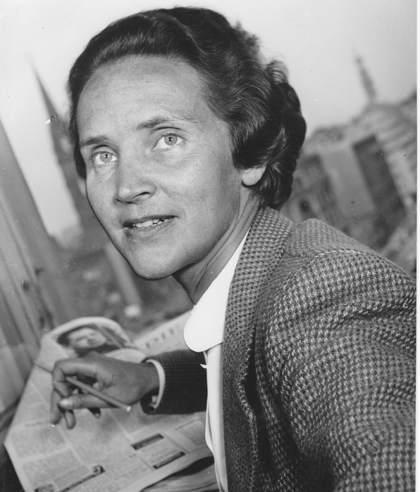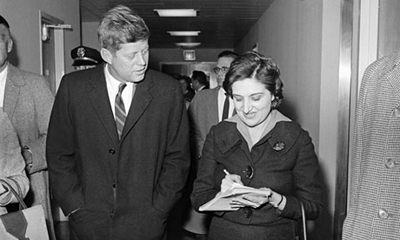By Peter Hossli
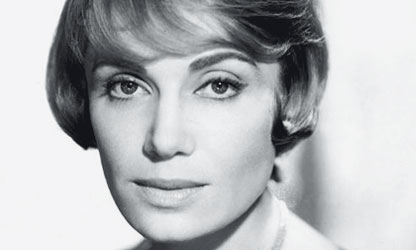
Schuller means to change that.
The would-be reporter applies to the Süddeutsche Zeitung, enclosing samples of her writing, signing «A. Schuller» to disguise her gender. The publisher likes the texts. He invites A. Schuller for an interview – and is stunned to learn that she is a woman. «All right,» he says, «now that you’re here you may as well stay.»
Schuller is the only woman to intern with the Munich paper. Sure, her good looks don’t hurt. More importantly, though, she has a smooth writing style. She rises in the ranks and becomes a well-paid columnist with the popular illustrated weekly Stern. She goes on to marry Werner Friedmann(1909 – 1969), founder of the Munich Abendzeitung and an investor in the Süddeutsche Zeitung. Following his death, Anneliese Friedmann is co-owner of both papers. She has power, power that she attained by initially having to deny being a woman.
Her story is typical of many women who got into journalism: Starting out, their talent wasn’t enough. They had to be more original and better than the men. Eventually these women rose to become powerful media personalities.
Their names are legion. One enabled the most important investigative report on record to go forward. Another woman had more impact on movies than anyone else. Yet another built an empire branded with her given name. One woman is now the most influential personality in online news worldwide. And who was the most important voice in German postwar journalism? A woman!
Often barred from public office, women were quick to recognize journalism as a forum for political activity. Although denied suffrage, they were still permitted to write.
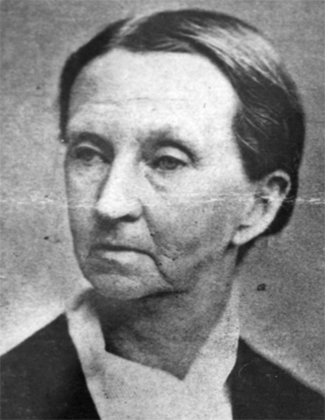
Even in today’s times, a desk in an editorial office serves as a substitute for political office. The ratio of influential women journalists is far higher in the U.S.A. than in Europe – because women still find it difficult to get into politics. There has never been a female US President. Only a scant few states have elected female governors. Until 1992 there were never more than two women in the US Senate; now, at least, there are 20, i.e. one fifth of the Senate body.
Conversely, editorial offices in the U.S. are staffed to one third with women. Especially when it comes to television, women call the shots.
The Woman of Steel: Katharine Graham
«The first lady of Washington and American journalism» is how US President George W. Bush (90) described Washington Post publisher Katharine Graham (1917 – 2001) shortly after her death. «Mrs. Graham became a legend in her own lifetime because she was a true leader and a true lady, steely yet shy, powerful yet humble, known for her integrity and always gracious and generous to others.»
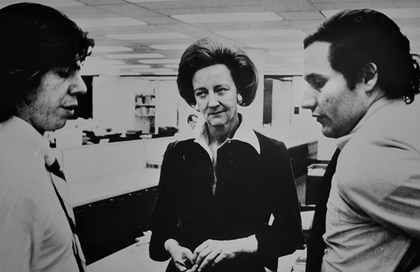
Philip Graham, who suffered from bipolar disorder, drank himself into depression and committed suicide in 1963, leaving a widow with four small children. Sinking her teeth into the business she’d inherited she led the Washington Post to unprecedented glory. In terms of journalistic quality, the Post was on a par with the New York Times in the early 1970s. In 1971 it was Graham who decided to publish the «Pentagon Papers» at the same time as the Times. These secret reports revealed the disastrous course of the Vietnam War.
One year later, the courageous publisher led her paper to what may be the most important achievement in newspaper history: the uncovering of the Watergate scandal and the resignation of President Richard Nixon. «Our greatest fear became that we would make a mistake,» Watergate reporter Carl Bernstein (70) told DOMO. But: «We had the backing of the great and powerful Washington Post, with editor-in-chief Ben Bradlee and Katharine Graham behind us, which gave us a great sense of comfort.»
When Graham resigned from all her offices in 1999, her company was worth two billion dollars. Then a man took over. A year ago, Jeff Bezos (50) bought the company for 250 million dollars.
They called her «the Countess» because she was an aristocrat and had grown up on an estate, «but her nobility derived from her conduct, not her birth,» former US Secretary of State Henry Kissinger (91) said of Marion Dönhoff (1909 – 2002). She was Germany’s most important woman journalist and as influential as Henry Nannen (1913 – 1996), the founder of Stern, and Spiegel publisher Rudolf Augstein (1923 – 2002).
Dönhoff was born in East Prussia and enjoyed a sheltered upbringing amid horses and servants. She studied economics in Frankfurt and earned her doctorate in Basel, Switzerland, where, as soon as the Nazis seized power in Germany, she began to distribute flyers against the brownshirts. In 1944 she helped to organize the failed attempt on Hitler’s life.
When the Red Army invaded from the east she fled on horseback, surviving a six-week odyssey westward. She got into journalism «quite accidentally,» she said. «I wanted to make a good paper for a good Germany,» Dönhoff stated and helped to found the weekly Die Zeit in 1946. She wrote and researched articles, was promoted to political editor, left the paper in the mid-1950s because she felt it was too right wing, came back and was promoted to editor-in-chief in 1968. Four years later she became the publisher – an office she held until her death and which, for the last few years, she shared with Germany’s former Chancellor Helmut Schmidt (95).
Her life’s motto was tolerance, as she affirmed in a high-school graduation speech in 1995. «Above all, you need to try to be tolerant,» she told the students. «For those who are truly tolerant will not succumb to hatred and thus not be tempted to resort to violence.»
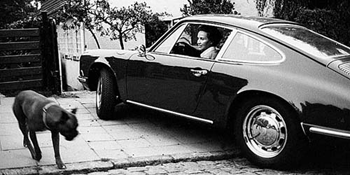
Her texts often had literary merit. Dönhoff would travel wherever the stories were. She would fly to New York or ride from Amman, Jordan, to Baghdad, Iraq, in a taxi with three other passengers because she knew she would learn more in a taxi than she would on a jet. She never married nor had children; she was fine-boned and she liked fast cars.
German politicians of all colors found an important counterpart in her. She stood up for reconciliation with the Soviet Union and supported the foreign policies of Chancellor Willy Brandt (1913 – 1992), who humbly knelt down in Warsaw and apologized for the Nazis’ atrocities. Her goal was that Germany, divided after the war, should reunite. Brandt even asked her to stand for the office of German President. Dönhoff declined because like so many powerful women in the media she felt her power lay not in office but in words and phrases.
White House correspondent Helen Thomas (1920 – 2013) covered the terms of ten US Presidents. She asked hard questions of John F. Kennedy (1917 – 1963) as well as Barack Obama (53), Richard Nixon (1913 – 1994) and George W. Bush (68). She was president of the elitist White House Correspondents Association, and until shortly before her death she almost always sat in the front row during White House press conferences. She got to ask the first question and ended press conferences with a respectful «Thank you, Mr. President» – a sign of gratitude that Thomas denied US President George W. Bush when he invaded Iraq.
Thomas was the first female member of the National Press Club and the only woman in the press corps traveling with Nixon on his trailblazing visit to China. Her tough questions made her «the most famous woman reporter» in the US capital, according to the Washington Post. So exasperated by her questions was Gerald Ford that he publicly said: «I’m firmly convinced that if the good Lord had made the world today, on the seventh day, he would not have rested. He would have had to justify it to Helen Thomas.»
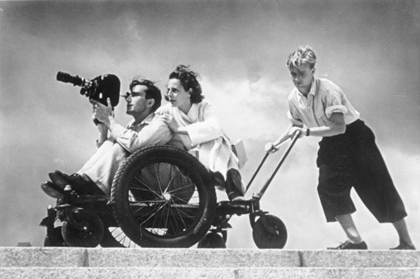
In esthetic terms, Leni Riefenstahl (1902 – 2003) is revered for her groundbreaking camerawork and montage. The Neue Zürcher Zeitung, usually prone to understatement, called her a «directorial genius». «An ambitious filmmaker», nothing more, was how she once described herself to me in an interview by e-mail. Of course, Riefenstahl said, «I regret that my way of composing images is dubbed fascist.»
One thing is clear: The German director was a protégé of Adolf Hitler (1889 – 1945) and may have exerted more influence than any woman before her. Her effective propaganda consolidated the power of one of the greatest monsters in history, and she accelerated Hitler’s rise. Her film «Triumph of the Will» about the 1934 Nazi Party Rally was instrumental in making Hitler famous even in the backwaters of Germany.
Augstein, the founder of the weekly Der Spiegel, called her «the Fuhrer’s bride, barring sex», and throughout her life she would be asked about Hitler and always answer that she had been fascinated by him and regretted ever meeting him. That she had not been aware of the atrocities during the war. «We never heard about the book burnings because there was no television back then,» she said. When she shot «Triumph of the Will» in 1934 she «had no idea that there would be concentration camps or anything like that. How was I to know?» she told the Frankfurter Rundschau.
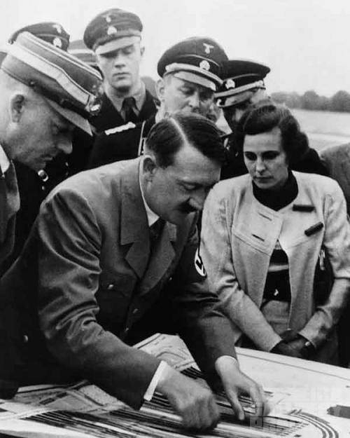
Critics like Susan Sontag or filmmaker Erwin Leiser blame her for having been just as choosy when the Nazis were in power – favoring the beautiful over the ugly, the «Aryan» over the «racially inferior», the strong over the weak, the healthy over the sick. «Leni Riefenstahl was no war criminal in the proper sense; there is no blood on her hands. She did, however, more than any other propagandist, contribute to entrenching the ideal of a master race entitled to rule the world in Germans’ minds,» Leiser wrote.
The Queen: Oprah Winfrey
TV talk-show host Oprah Winfrey (60) has been called the «Queen of All Media». Her career is one-of-a-kind. There is no doubt that she is currently the world’s most powerful woman in media. Forbes magazine estimates her net worth at three billion dollars. She rules an empire that is active in almost every type of media business. The name says it all. Oprah? Every child, grown-up and senior citizen in the U.S. knows that name. Oprah TV. Oprah online. Oprah print. Oprah radio.
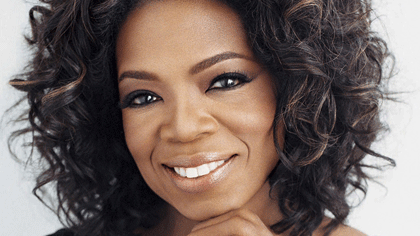
All that incredible hardship, Oprah Winfrey would later say, served to motivate her. She needed to become somebody. At 17 she won a beauty pageant. She took to the stage and read the news on the radio and for a local TV station. In 1986 she launched «The Oprah Winfrey Show», a one-hour talk show that would garner her riches and popularity. She produced films and worked as an actress.
According to CNN, Oprah is «arguably the world’s most powerful woman», and TIME magazine ranked her among the world’s most influential people eight times, more often than anyone else. Only the Pope had more influence than Oprah Winfrey, wrote Vanity Fair.
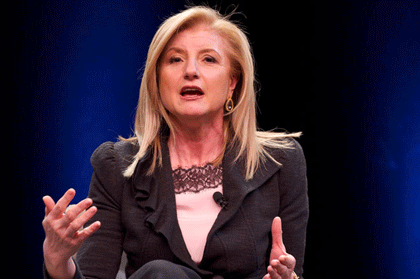
Ariánna Stasinopoúlou was born in Athens in 1950. Her father was a journalist. At age 16 she moved to London and studied economics. In California in 1985 she met her future husband Michael Huffington and embarked on a career in journalism and politics in the U.S. She wrote more than a dozen books, mostly on political and feminist issues. In 2005 she launches the Huffington Post, an online paper that changed the face of media around the world. HuffPo started out as a news platform with lots of liberal bloggers. In 2011 AOL bought the platform for 315 million dollars, making Arianna Huffington a multimillionaire and editor-in-chief of an internationally operating media enterprise.
She keeps thinking about the ways in which media influence people and vice versa. In her 2014 book «Thrive» she calls for more sleep and less media consumption. She does not want everyone to be married to their smartphones. She favors walking meetings, quoting Silicon Valley executive Nilofer Merchant: «I love that people can’t be checking e-mail or Twitter during walking meetings.» Her definition of success is female: «Success is more than the money in our bank account, the size of our house, how high we’ve gone up the career ladder. Work and financial security are important. But if all we do is pursue money, power and fame, we are missing the meaning of life: exchanges with others.»
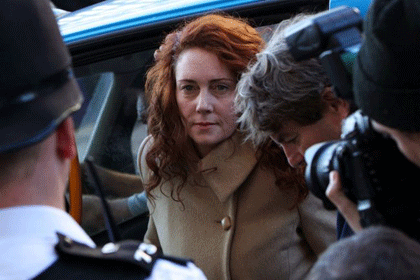
Not all women in the media glitter; some are ruthless, inscrutable and treacherous. British-born Rebekah Brooks (46) made the English tabloid News of the World a success – on the strength of highly dubious exclusives. At the age of 31 she was appointed editor-in-chief of News of the World by media tycoon Rupert Murdoch.
The secret of her success was a simple formula: scandals from the lives of the beautiful and famous. Her reporters got many of these stories by tapping their phones.
And that is illegal. When this scandal broke, Murdoch fired her and shut down the paper. She was arrested, and the prosecution brought charges. Even the demure Neue Zürcher Zeitung branded her a «witch».
Last June a jury cleared her of all charges.
The lady made sure that her parachute was golden – Murdoch gave her 10,8 million pounds in compensation as well as the use of a chauffeur-driven car. That, too, is power.
Sixty-six years ago, Anneliese Schuller had to disguise her gender. It was the only way she could get a desk and a typewriter. Since those days, women have torn down a lot of barriers. They are editors-in-chief at renowned papers, including – until recently – the New York Times. The courage and ambition of pioneers like Schuller, Dönhoff or Graham have paved the way for many women, and now they run publishing companies, win Pulitzer Prizes and put their own ideas into practice. They leave their mark on the media, making them more female, which is to say: more sophisticated, more exciting and more human.

